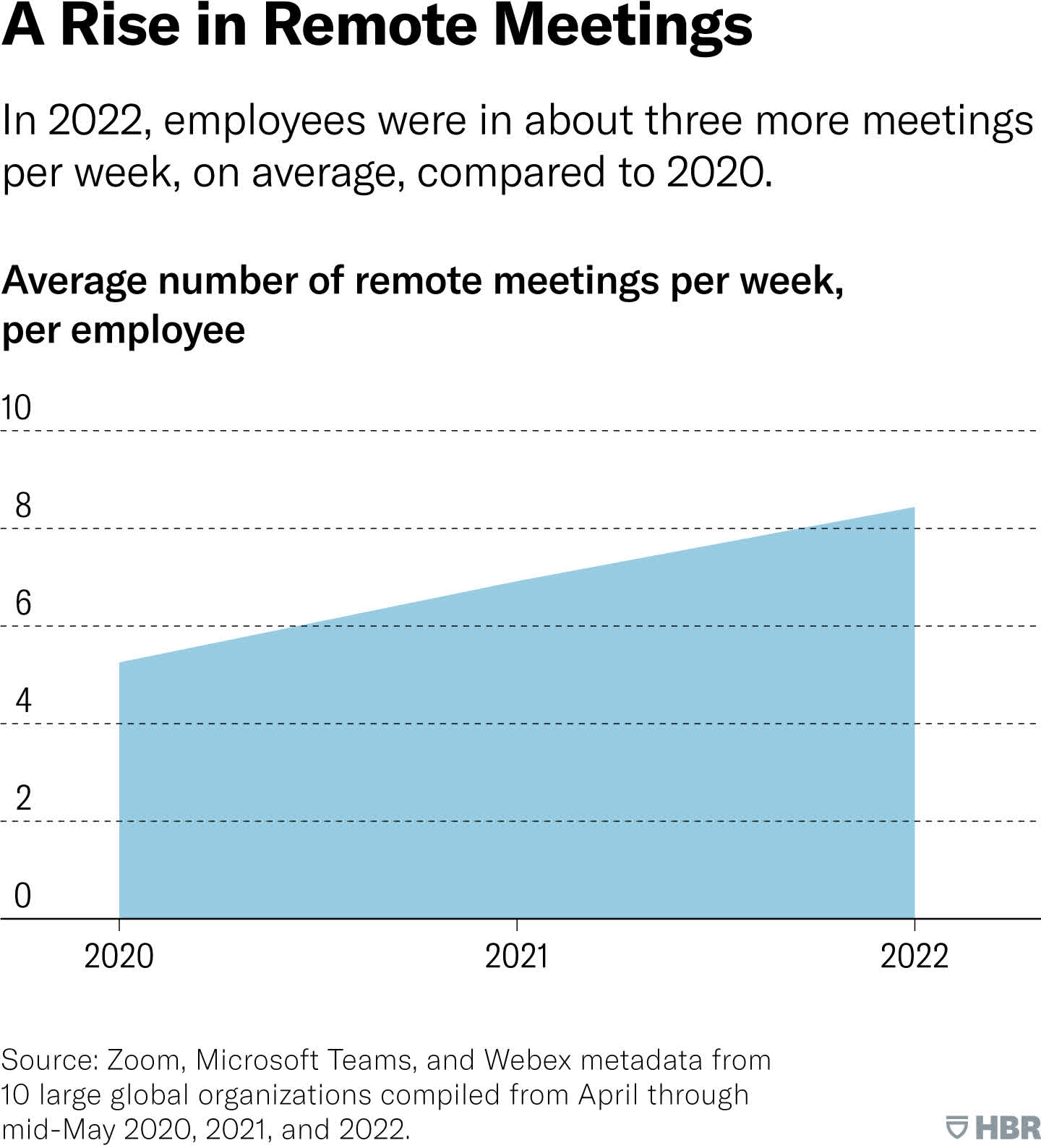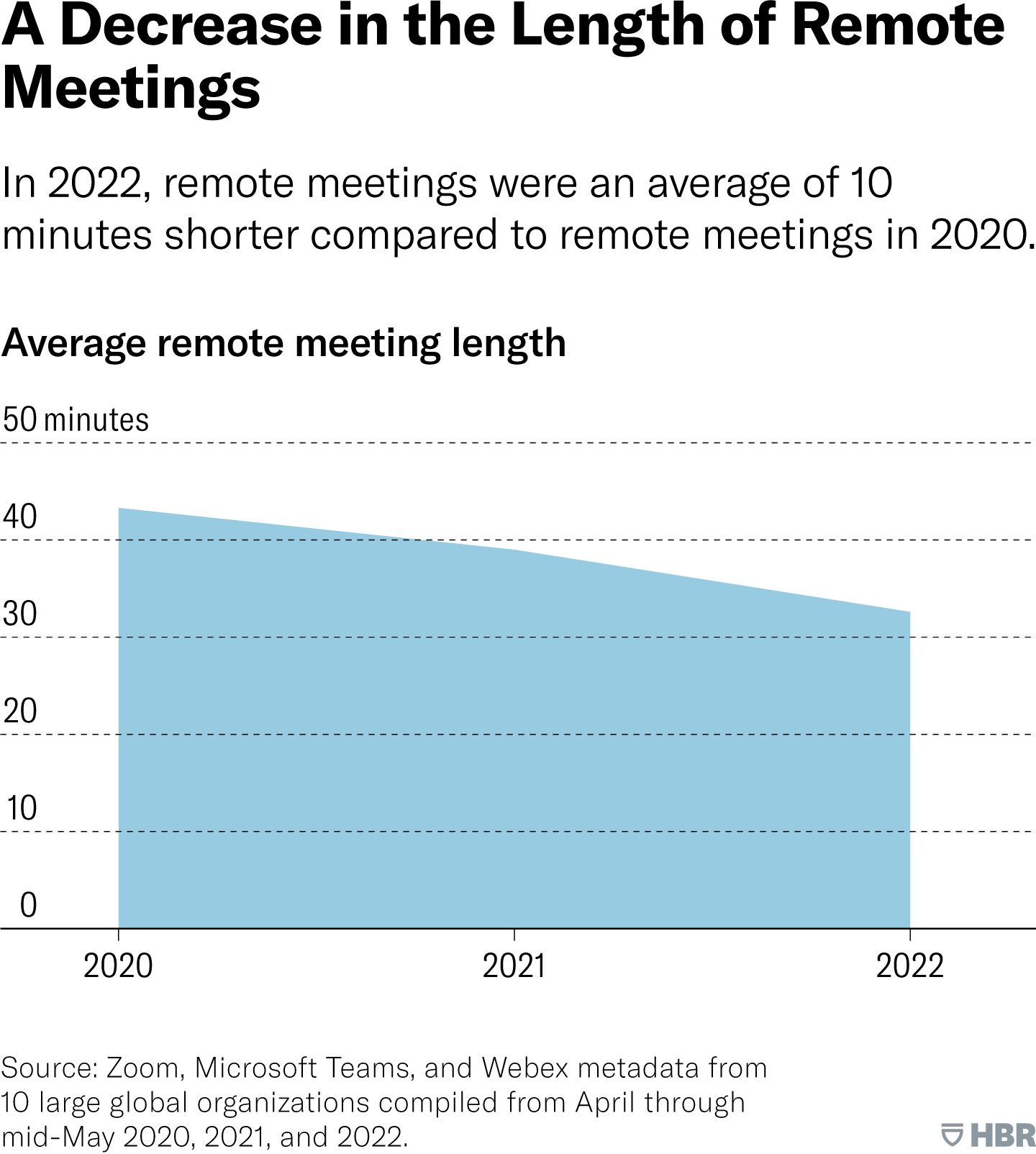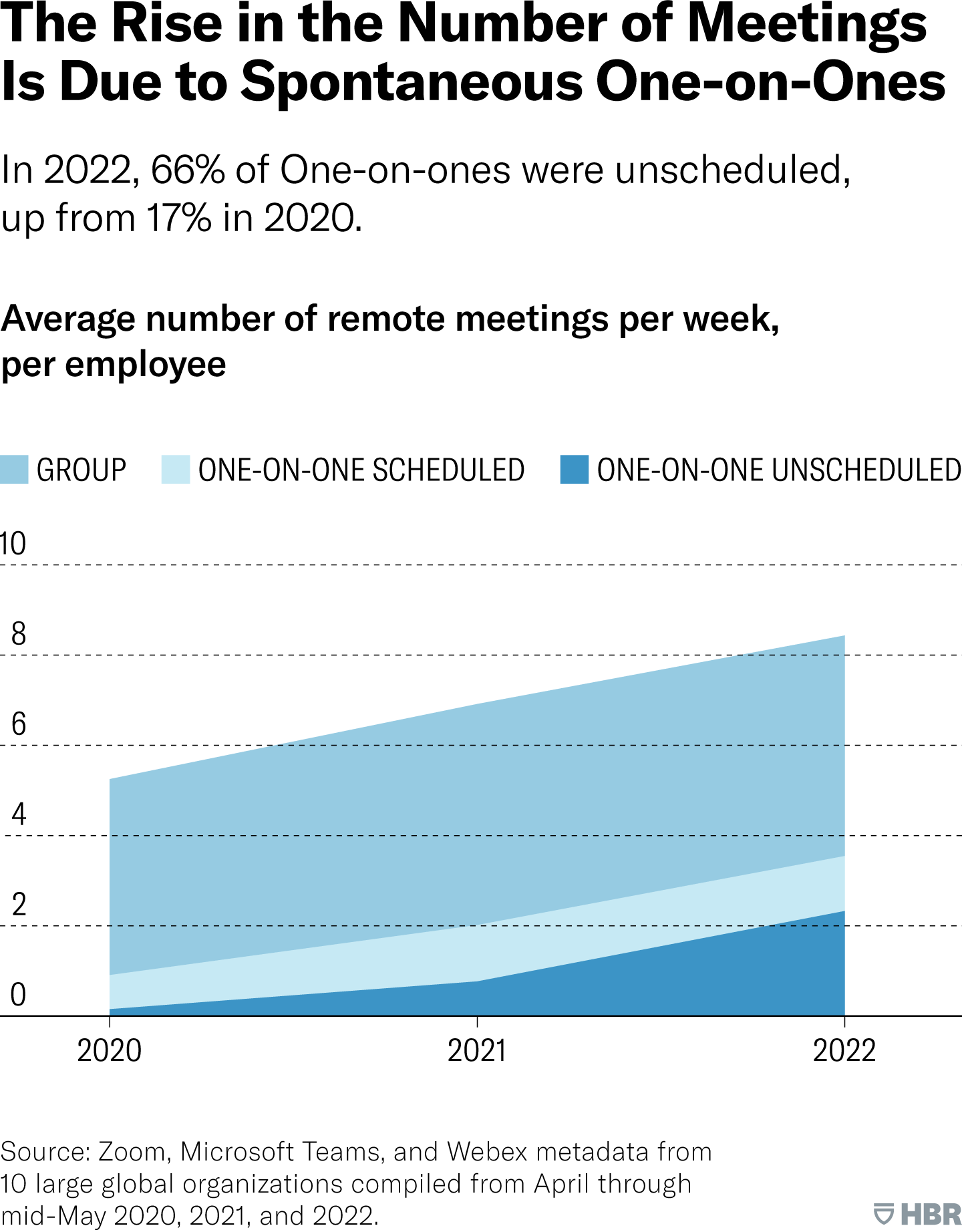The big picture: The backlash against the rise of remote work was probably inevitable. Some who favor returning to offices claim that remote employees become less engaged over time, but a recent study suggests the opposite. It also provides some possible tips on improving remote work.

A recent analysis of millions of teleconferenced meetings suggests that remote workers increased their engagement with colleagues between 2020 and 2022, contrary to previous assumptions. The results have limitations but show that work-from-home interactions changed over time without decreasing frequency.
Teleconferencing and collaboration analytics company Vyopta compared remote meetings during the six weeks from April to mid-May in 2020, 2021, and 2022. The company collected metadata from Zoom, Microsoft Teams, and Webex conferences from 10 large global companies. The analysis showed that over those three years, companies generally transitioned to holding a higher number of short meetings with smaller numbers of employees.

From 2020 to 2022, the observed companies increased the number of teleconferences by 60 percent, from an average of five to eight weekly meetings per employee. However, those sessions became 25 percent shorter, from an average of 43 to 33 minutes. Furthermore, the number of participants fell by half, from 20 to 10. Vyopta chalks these changes up to the rise in spontaneous one-on-one gatherings during the observed period.
The metadata told Vyopta which meetings were scheduled on calendars and which used functions like Microsoft Teams' "Meet Now." In 2020, 17 percent of employee discussions were one-to-one, and 17 percent were impromptu. In 2022, 42 percent were one-to-one, and 66 percent were spontaneous. Vyopta speculates these meetings could be replicating frequent-but-brief in-person interactions in offices.

The study also showed that employees who eventually left companies were less engaged in remote meetings. They participated in 67 percent fewer spontaneous one-on-one interactions, 22 percent fewer scheduled one-on-one meetings, and 20 percent fewer group gatherings.
The data indicates that remote engagement is vital to employee retention for companies with many remote workers. Vyopta suggests that companies should try to strengthen interactions with workers who seem to be drifting away, ideally through open conversations about why they are disengaging.

The main limitation of Vyopta's analysis is that it only sees remote interactions. Therefore, it can't account for the return to the office or the emergence of hybrid work for a fair comparison. The study also can't prove or disprove how many remote workers feigned engagement to look busy.
The company used its data to offer some suggestions to improve teleconferencing. Vyopta said companies with remote workers should ensure employee schedule overlapping, though within reason since some employees could be in significantly different time zones. They also shouldn't mandate video conferencing, as audio-only interactions can improve social bonds and prevent "Zoom fatigue."
https://www.techspot.com/news/96943-study-shows-remote-workers-becoming-more-not-less.html